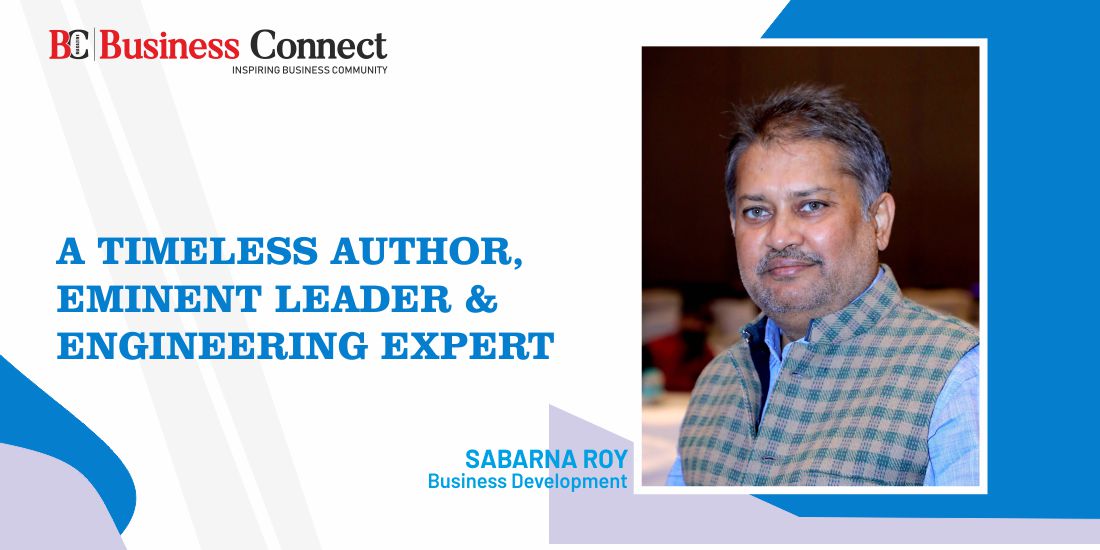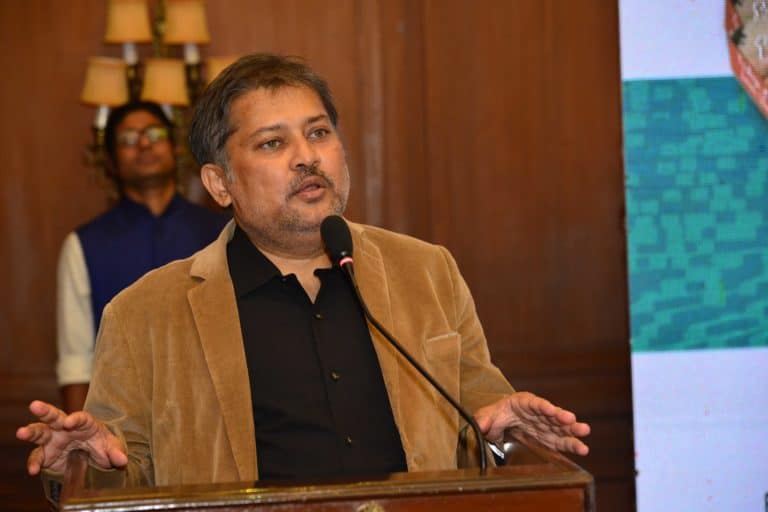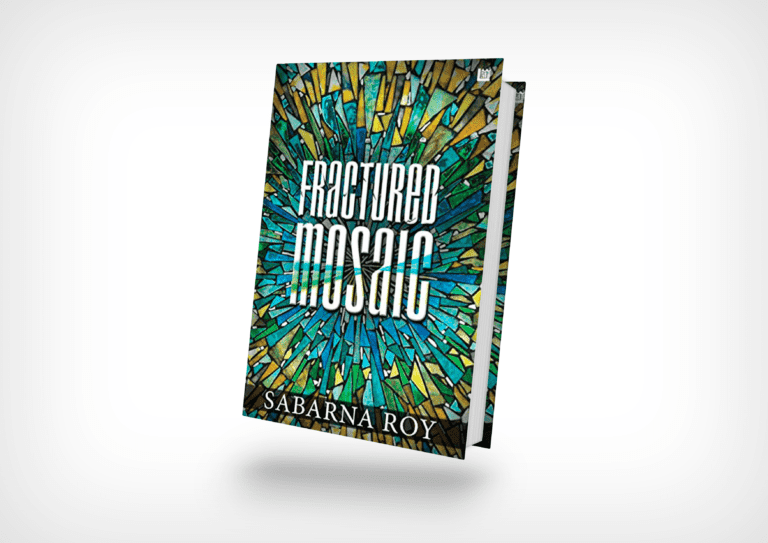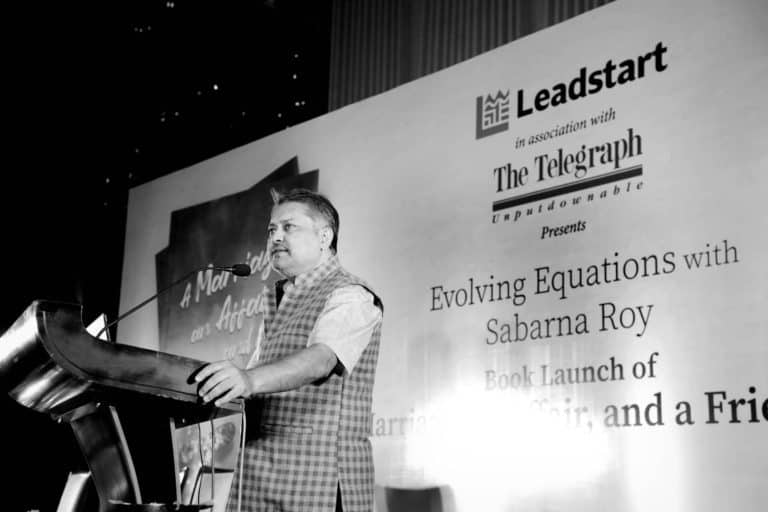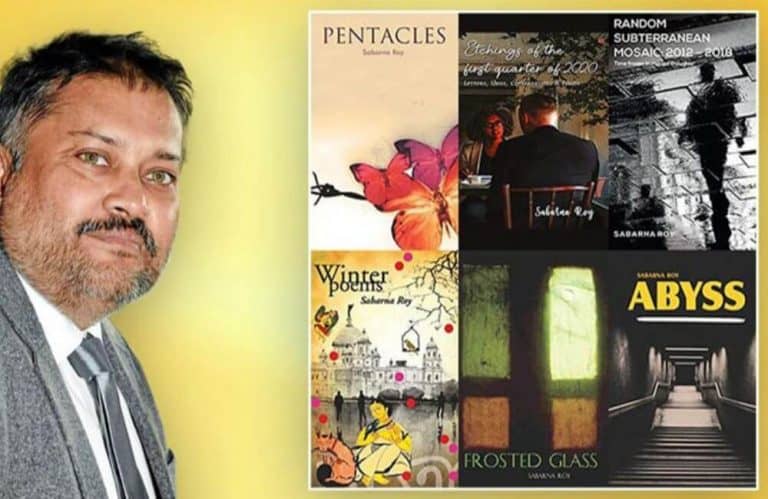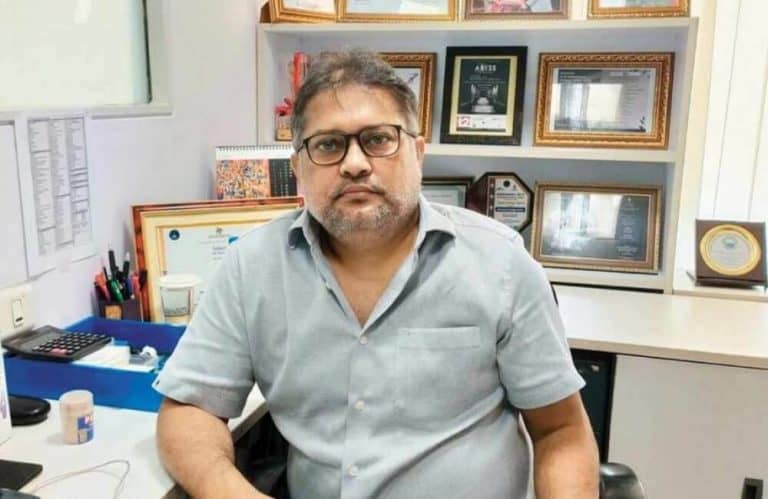A Timeless Author, Eminent leader & Engineering Expert
Musings of a Lazy Author
Sabarna Roy is Senior Vice President [Business Development] at Electrosteel Castings Limited, an author of eight Literary and three Technical bestselling books, TEDx Speaker, Champions of Change Award 2020 Winner, Times Excellence Award 2021 Winner in Indian Literature, and Golden Glory Award Winner for Critically Acclaimed Bestselling Author of the Year 2021. The luminary has been awarded the Right Choice Award for Author of Eminence of 2022. Also, he has been selected among the India Today Group: Icons of India. Presently, he is writing his ninth Literary work: an epistolary novel, that is likely to be published in the winter of 2022/23. Since the age of fourteen, Sabarna Roy has been maintaining a daily journal containing the minutest details of his life.
Some of the journal entries are reproduced in this column for the benefit of the readers.
1. Is turbulence of aircraft due to passing through a thick layer of cloud cover akin to experiencing bad weather? No, certainly not! Yet the announcement inside the aircraft during turbulence on account of anything in India is attributed to ‘bad weather”. Who will explain to these dullards (aviation guys) that clouds are wonderful natural formations and most of the time is harmless. The announcement in such a case should be, “We are experiencing turbulence as we are passing through a thick layer of cloud cover.” In fact, this will also keep the anxieties of passengers in check because the phrase ‘bad weather’ always sounds ominous.
2. Surgery at one point in time was one of the greatest inventions of mankind and would not have been possible on a sustainable basis without the invention of antibiotics. The lifeline of antibiotics is another 10-15 years according to medical experts and no new molecules are on the way according to pharmaceutical companies. Doctors say that in this grim scenario their main task in the near future would be to avoid surgeries and manage pain by morphine regimen as would be required. So, we are returning to our past when our great-grandfathers would be advised a regular dosage of opium when detected with an undetectable/chronic illness. Good for us! Do we deserve anything better?
3. What would this planet look like after 50 years? Will double-mutton roll still be selling in the streets of Kolkata? Would mango pickles dabbled in urban wastewater be sold for free along with oxygen cylinders (for your regular respiration)? Would the likes of Donald Trump and ISIS have wiped off human civilization and the ecosystem? Or would we have moved away from an industrial society to a more balanced agrarian society with lesser control of borders between nation-states?
Will collaboration between individuals and communities be key to survival or competition will still rule the planet? Would we be migrating away from a technocratic society to a more ecologically evolved society? The key question is – would we have given importance to human intuition and imagination for once more than the plethora of doctrines built across centuries?
Well, this is idle chat. I am a know-all hyper-selfish person (like most of you) and really do not care about what will happen to this planet after 1 year not to say after 50 years!
4. Confidence is: being caught on camera taking dirty cash and yet being able to remain in a state of shameless denial because it certainly is ‘political sabotage’.
5. Persons working in government enterprises have to necessarily toe the government line; otherwise, their professional growth would be seriously hampered. People working in private enterprises have to necessarily side with the promoters’ management strategy; otherwise, they could be chucked out of the system citing insubordination and rebellion.
This is even true for doctors and lawyers working in government/private enterprises. I am not talking about engineers as they are essentially compradors in the enterprise of greed. If you are a private entrepreneur, you are driven by the creative instincts of economic art but more often than not you are driven by profiteering and greed. This is even true for doctors and lawyers who are working on their own. This could be even true to some extent for creative artists.
There are very few people who are driven by the passion to use their profession for the benefit of the community. Like, for example, Dr. Binayak Sen. I have always lacked this passion. And I always keep on wondering why I have lacked this passion! Can this passion strike me at some point in my life in the future or have I become so rotten that the shadow of passion will never fall on me and I will die having led a wasted life?
So, when my son’s mentor Prof (Dr.) Subhamoy Bhattacharya advised him to use his knowledge (after he has finished his full course of academics) for the benefit of the impoverished in the country where he belongs, maybe by working on the subject of retro-fitting of structures in villages falling in Seismic Zones IV and V, I was deeply affected.
6. The first novel that I read after joining the Civil Engineering course at Jadavpur University in 1984 was Ragtime by the American Novelist E L Doctorow. Published in 1975, Ragtime changed my very concept of what a novel could be. An extraordinary tapestry, Ragtime captures the spirit of America in the era between the turn of the century & the First World War. The story opens in 1906 in New Rochelle, New York, at the home of an affluent American family.
One lazy Sunday afternoon, the famous escape artist Harry Houdini swerves his car into a telephone pole outside their house. Almost magically, the line between fantasy and historical fact, between real and imaginary characters, disappears. Henry Ford, Emma Goldman, J.P. Morgan, Evelyn Nesbit, Sigmund Freud, and Emiliano Zapata slip in and out of the tale, crossing paths with Doctorow’s imagined family and other fictional characters, including an immigrant peddler and a ragtime musician from Harlem whose insistence on a point of justice drives him to revolutionary violence.

